Proteases
Proteases, also known as peptidases or proteolytic enzymes, consists of a large number of enzymes catalyzing the hydrolysis of peptide bonds and subsequently resulting in the degradation of protein substrates into amino acids. Proteases are involved in a wide range of human diseases, including cancer, neurodegenerative disorders, inflammatory diseases and cardiovascular diseases. Thus numerous proteases inhibitors (small molecules and proteins) have been identified to block activity of proteases. Proteases inhibitors can be classified into different types based on the class of proteases they inhibit through two general mechanisms, irreversible “trapping” reactions and reversible tight-binding reactions. Proteases inhibitors have been used as diagnostic or therapeutic agents for the treatment of proteases-related diseases.
-
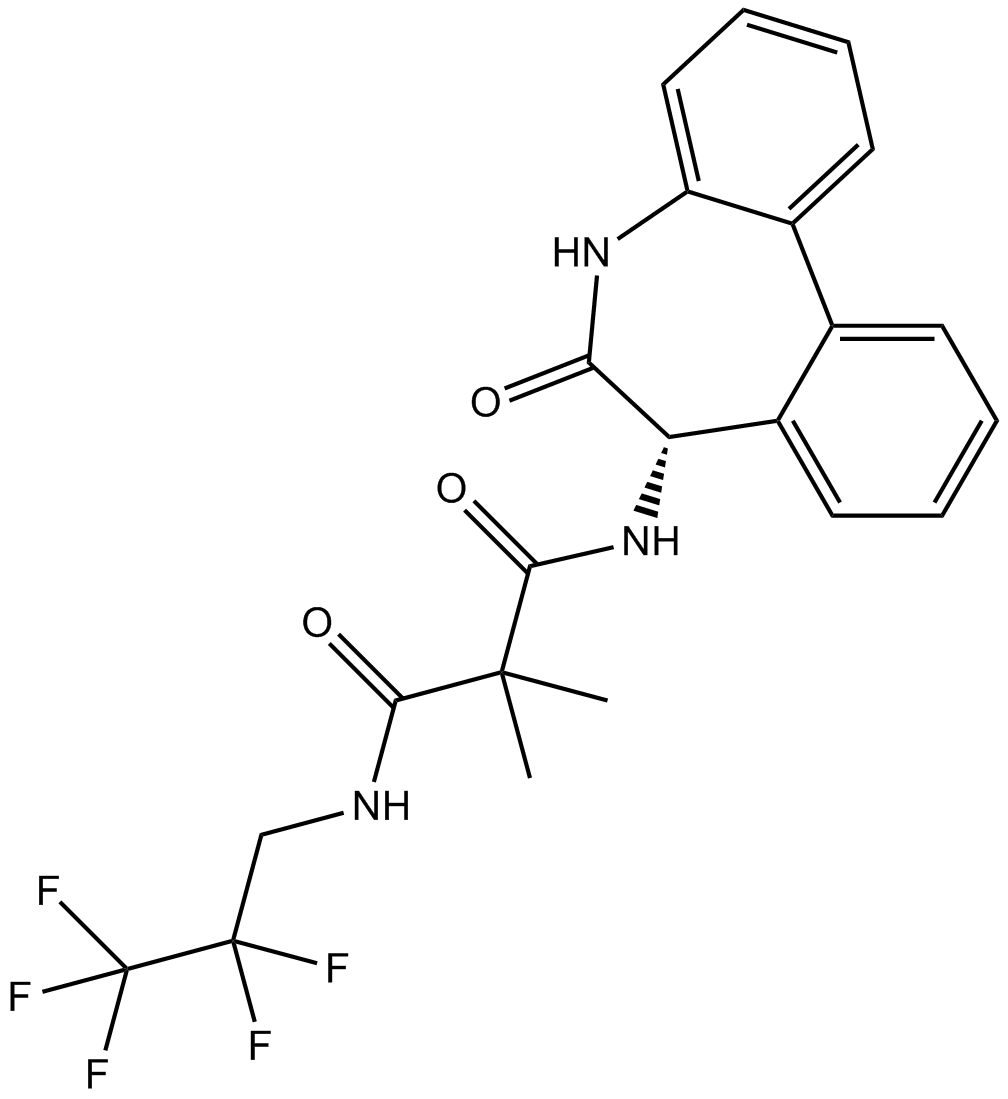 A4005 RO49290971 CitationSummary: γ secretase inhibitor
A4005 RO49290971 CitationSummary: γ secretase inhibitor -
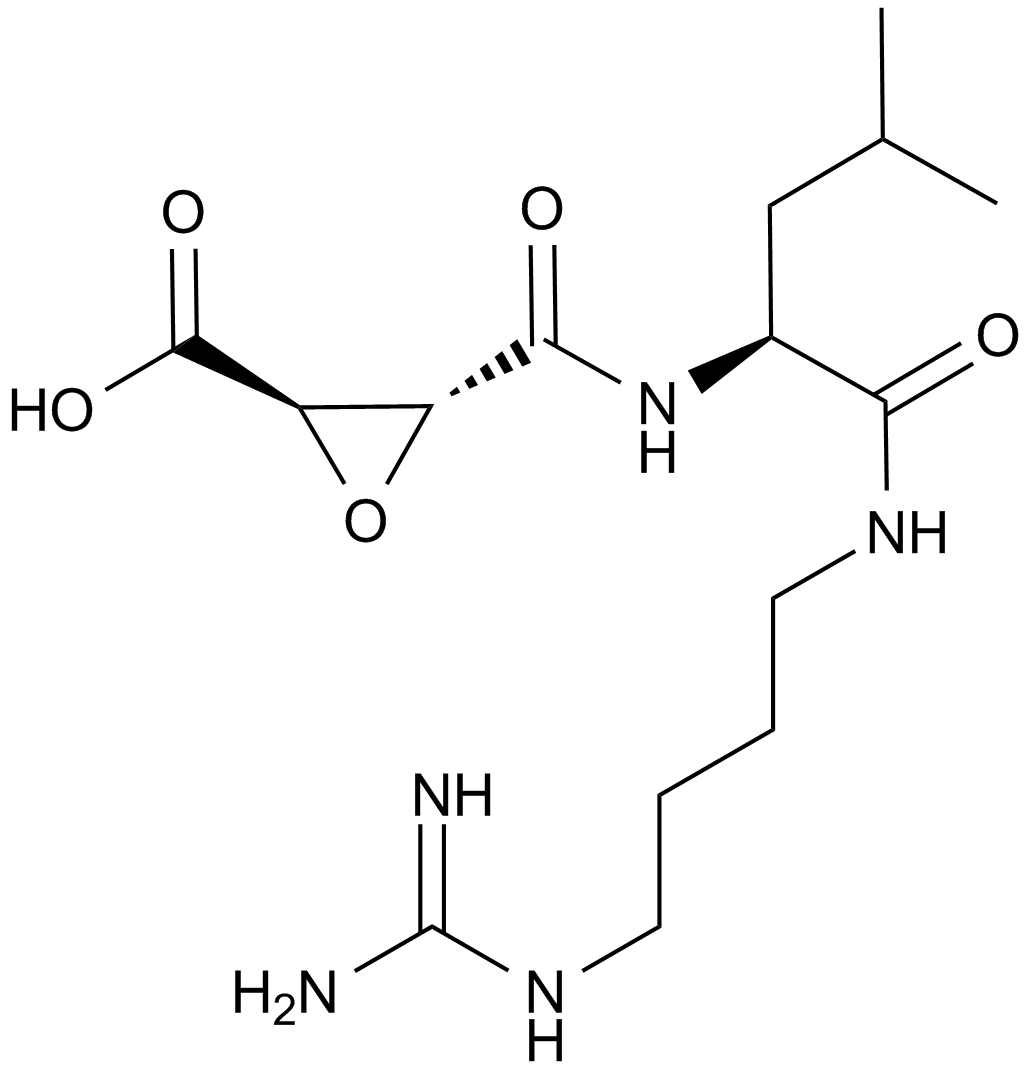 A2576 E-642 CitationTarget: Cathepsins|Calpains|PapainsSummary: Cysteine protease inhibitor,irriversible
A2576 E-642 CitationTarget: Cathepsins|Calpains|PapainsSummary: Cysteine protease inhibitor,irriversible -
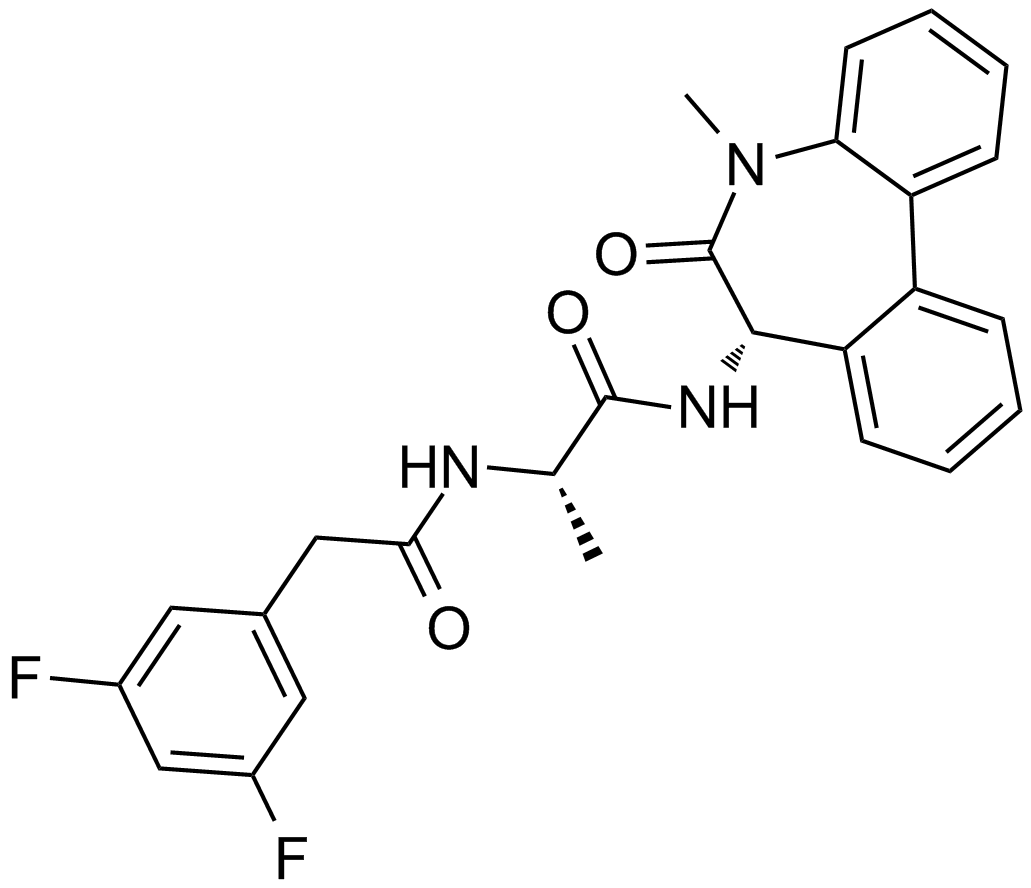 A4018 YO-01027 (Dibenzazepine, DBZ)1 CitationSummary: γ-secretase inhibitor
A4018 YO-01027 (Dibenzazepine, DBZ)1 CitationSummary: γ-secretase inhibitor -
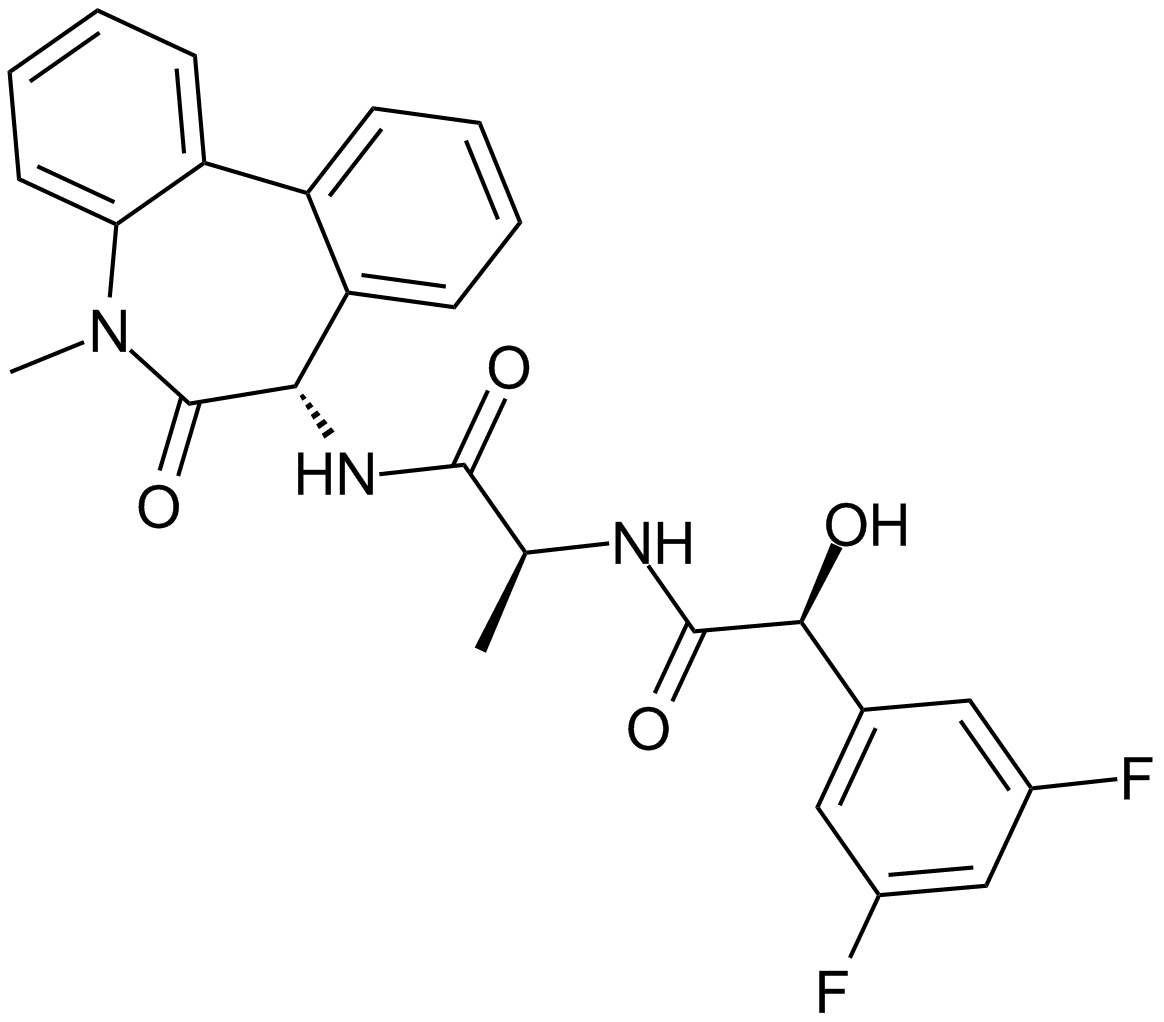 A4019 LY-411575Summary: Gamma secretase inhibitor
A4019 LY-411575Summary: Gamma secretase inhibitor -
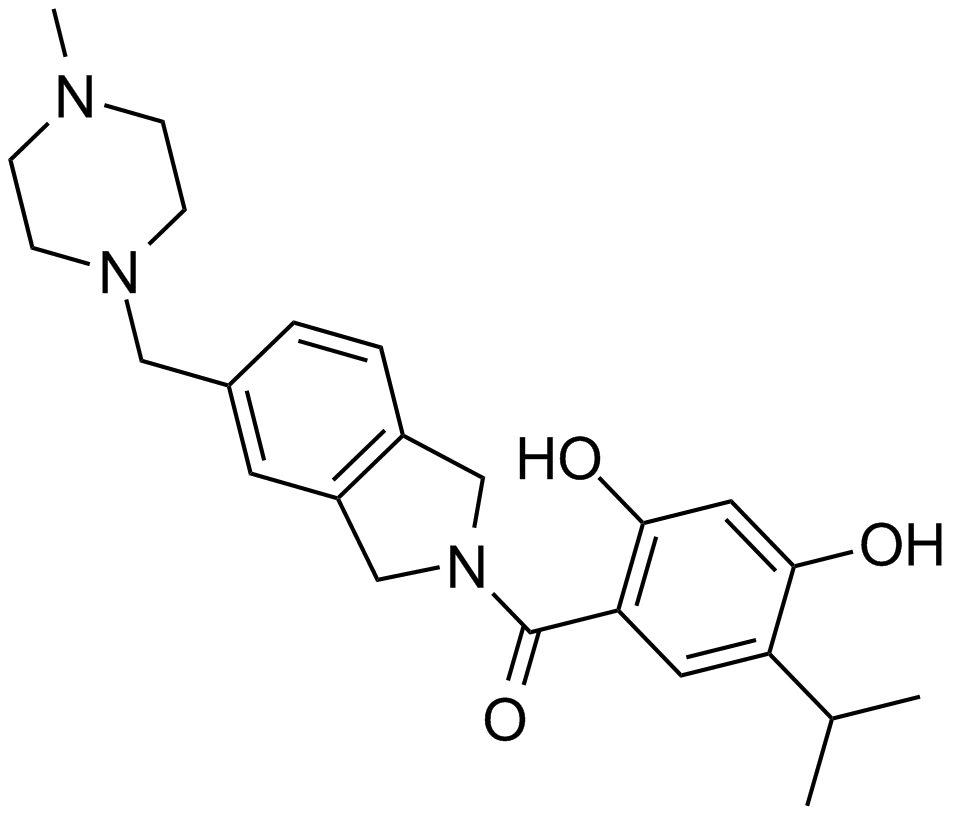 A4056 AT13387Target: HSP90Summary: Hsp90 inhibitor
A4056 AT13387Target: HSP90Summary: Hsp90 inhibitor -
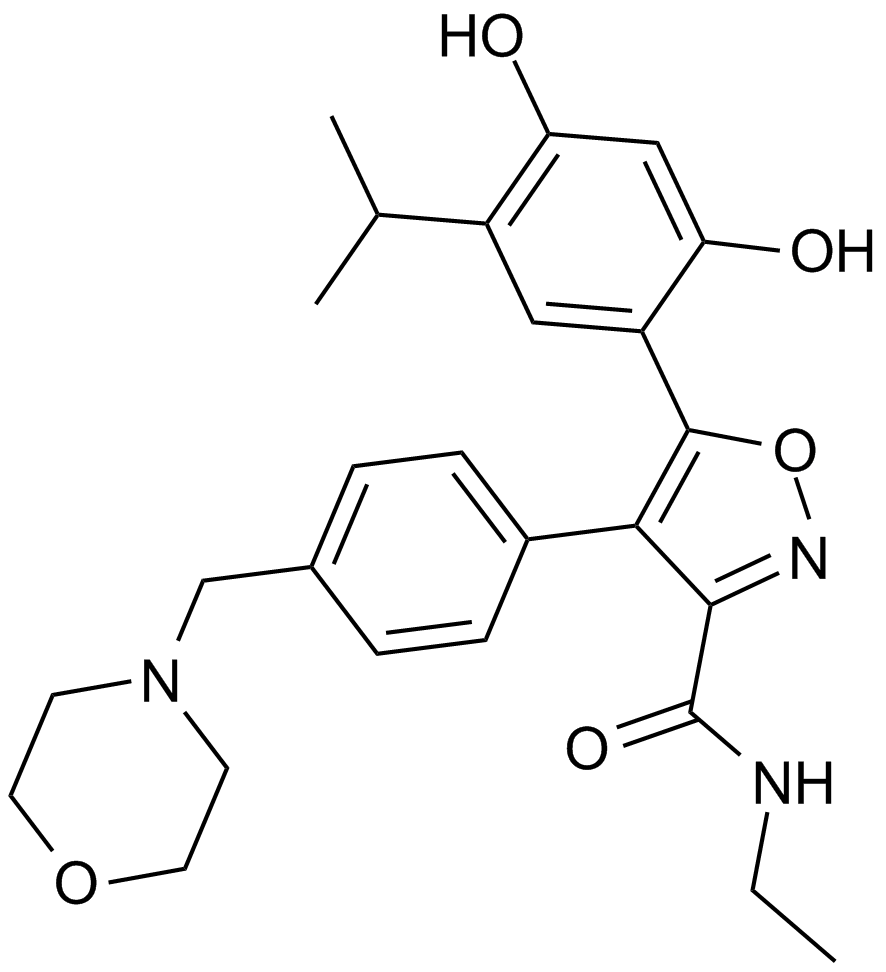 A4057 AUY922 (NVP-AUY922)1 CitationTarget: HSP90Summary: Potent Hsp90 inhibitor
A4057 AUY922 (NVP-AUY922)1 CitationTarget: HSP90Summary: Potent Hsp90 inhibitor -
 A4060 Geldanamycin2 CitationSummary: Hsp90 inhibitor,potent and specific
A4060 Geldanamycin2 CitationSummary: Hsp90 inhibitor,potent and specific -
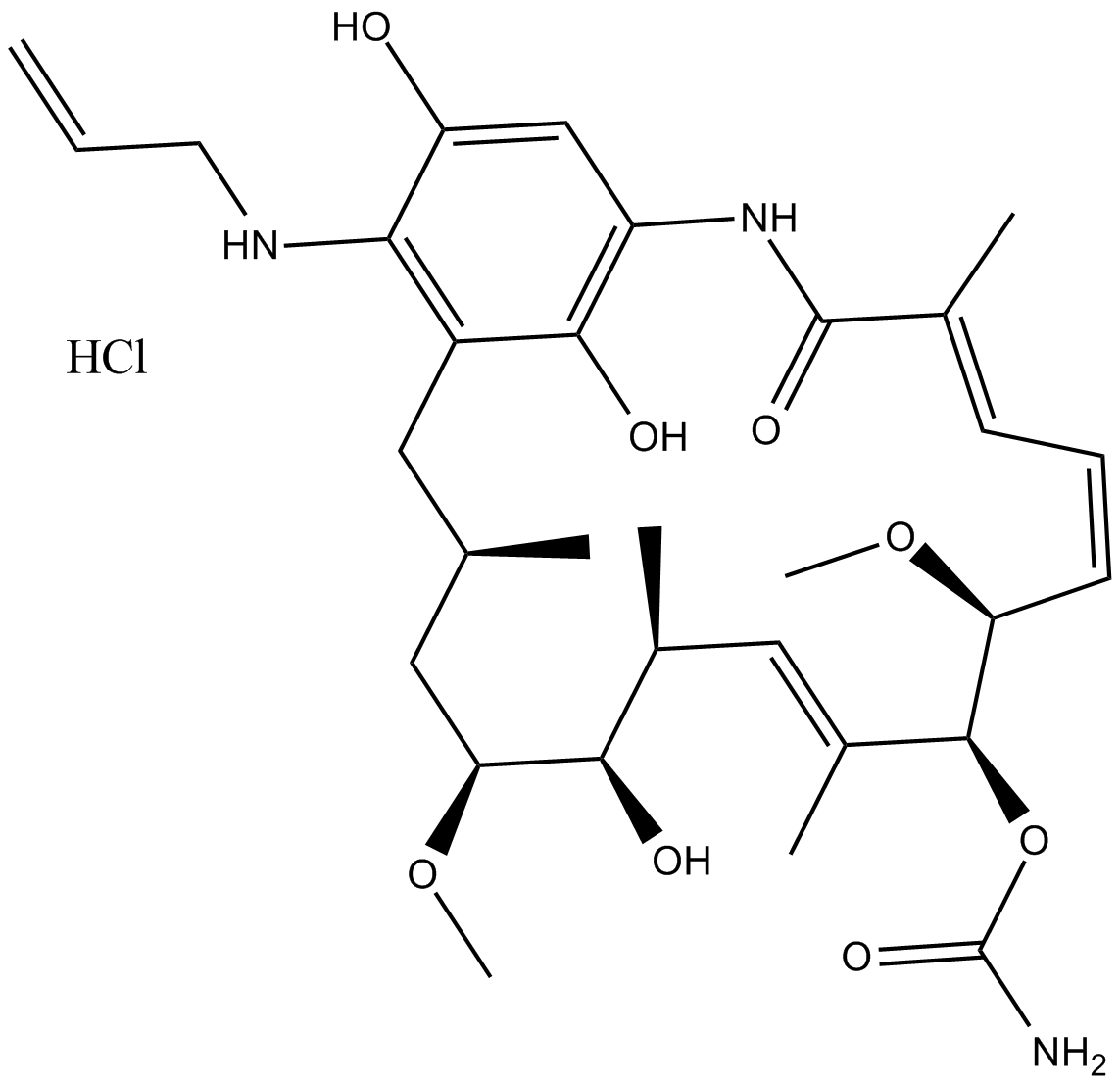 A4061 IPI-504 (Retaspimycin hydrochloride)3 CitationTarget: HSP90Summary: Hsp90 inhibitor,novel, potent,selective
A4061 IPI-504 (Retaspimycin hydrochloride)3 CitationTarget: HSP90Summary: Hsp90 inhibitor,novel, potent,selective -
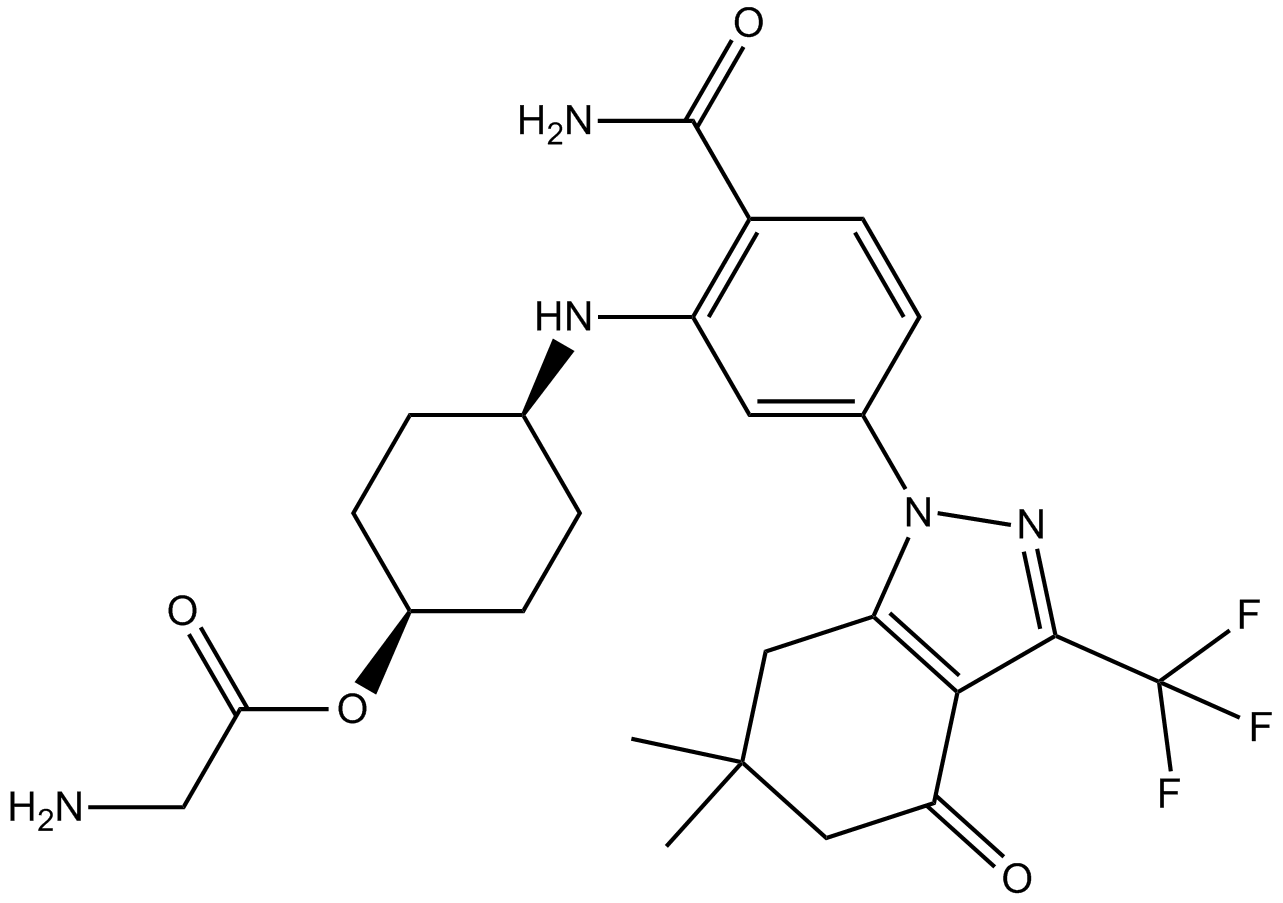 A4065 PF-04929113 (SNX-5422)Target: HSP90Summary: Hsp90 inhibitor,potent and selective
A4065 PF-04929113 (SNX-5422)Target: HSP90Summary: Hsp90 inhibitor,potent and selective -
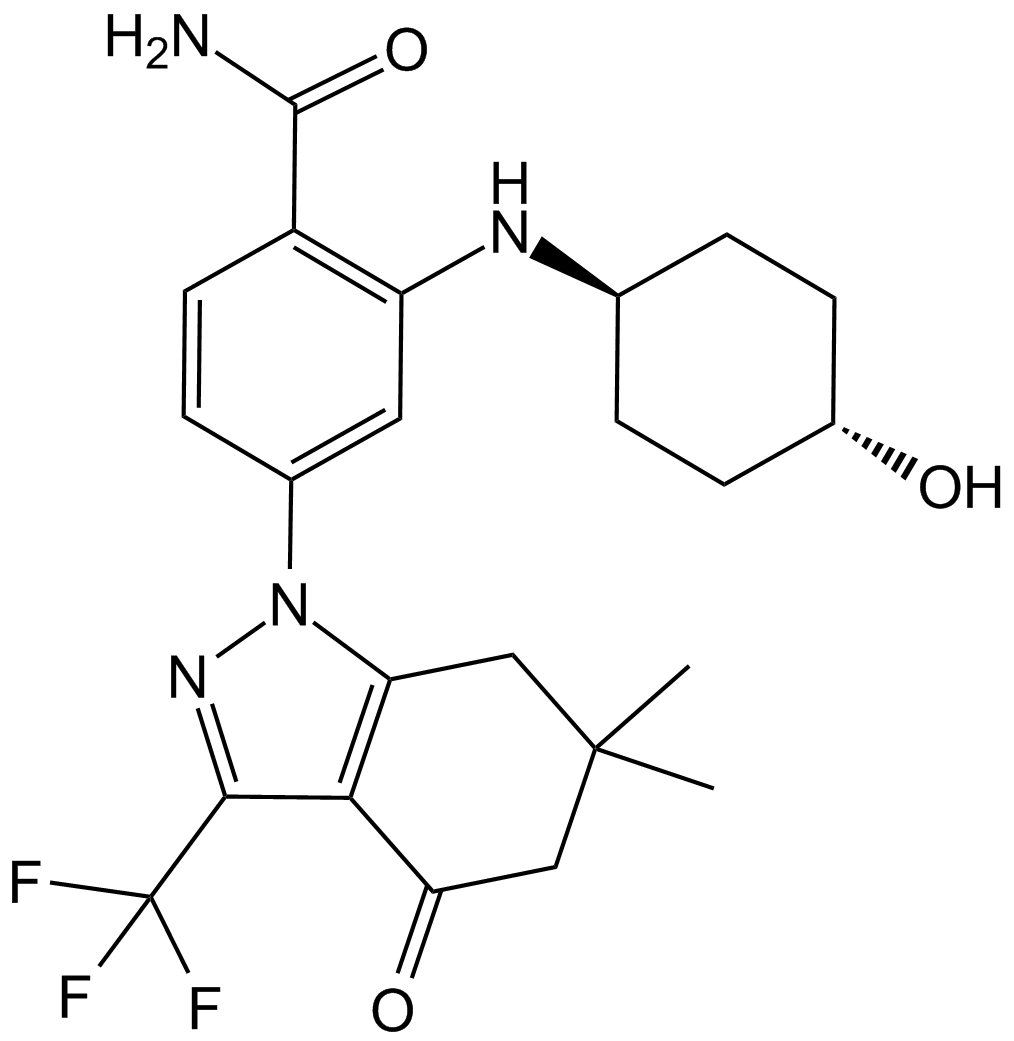 A4068 SNX-21121 CitationSummary: Hsp90 inhibitor,ATP-competitve,potent and selective
A4068 SNX-21121 CitationSummary: Hsp90 inhibitor,ATP-competitve,potent and selective

